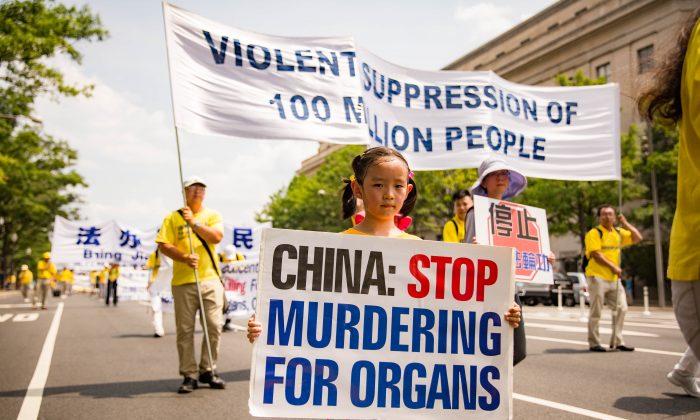The U.S. State Department is looking to increase the enforcement of immigration controls against human rights violators, in a move that could see Chinese officials involved in the persecution of Falun Gong being barred from entering the United States, according to a statement from a U.S. website that acts as a clearinghouse on the persecution of the spiritual practice.
An official from the State Department told various religious and faith-based groups about the intensified scrutiny. The official advised Falun Gong practitioners in the United States that they could submit a list of Chinese officials known to be involved in the persecution, the news release stated.

Falun Gong, also known as Falun Dafa, is a traditional self-improvement discipline with meditation exercises based on the tenets of truthfulness, compassion, and tolerance. The practice was introduced to the public in China in 1992 and quickly gained popularity, spreading from China to more than 80 countries.
According to a state survey, the practice reached over 70 million adherents by 1999—though practitioners estimated the number was over 100 million.

Lai Shantao, president of the Falun Dafa Association of Washington, D.C., confirmed to The Epoch Times that association representatives met with the State Department official earlier this year about the new action. The official told them the Trump administration is stepping up its enforcement of these laws, he said.
“This shows the U.S. government has entered a new phase in its concern for the persecution of people of faith worldwide, especially in relation to China—the most severe violator of religious freedom in the world,” Lai said.
He added that the development is a warning for officials involved in the persecution of Falun Gong in China, especially those who are thinking of visiting or fleeing to the United States.
“It sends them a message that you can’t persecute Falun Gong,” he said.
A spokesperson with the State Department, in an email to The Epoch Times, didn’t respond to questions seeking confirmation of the measures, but said that “the United States seeks to ensure that individuals who have violated human rights do not secure safe haven in the United States.”
Chinese Regime at War With Faith
Gary Bauer, commissioner at the U.S. Commission on International Religious Freedom, told The Epoch Times on May 31 that he would welcome the U.S. administration’s steps in this direction.“I certainly do not want to see the United States be a haven for those that have been implicated in persecution in other countries, in China or [elsewhere],” Bauer said. “My hope will be that anyone in the United States that [has] engaged in the persecution against people of faith in China will pay a suitable price in the United States for that persecution.”
“Universal respect for human rights and humanitarian law and the prevention of atrocities internationally promotes U.S. values and fundamental U.S. interests,” the proclamation stated.
“Chinese government is at war with faith. It is a war they will not win,” Brownback said on March 8.
This isn’t the first time a government concerned about the persecution of Falun Gong in China has made moves to bar Chinese officials from entering their country.





